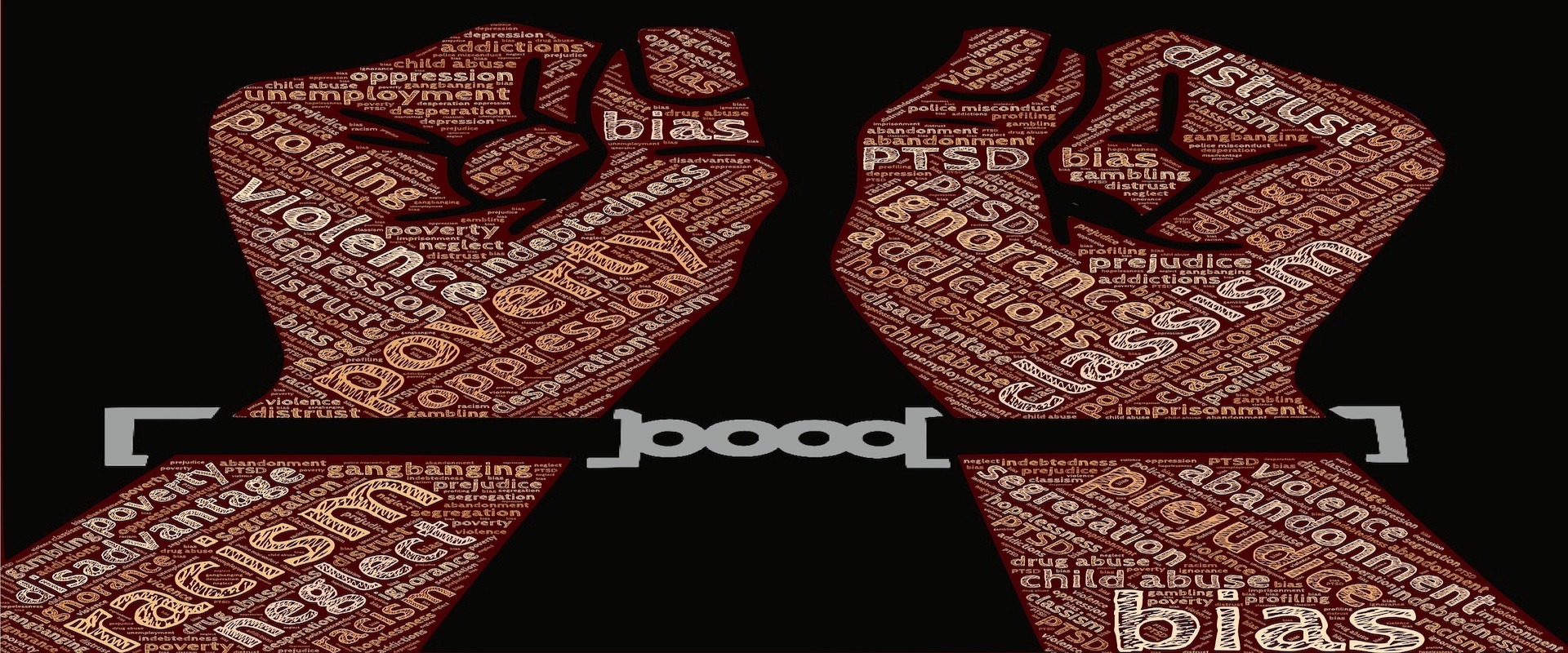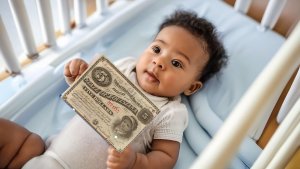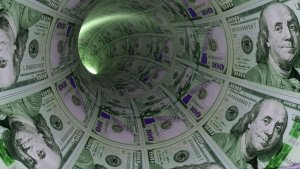Economist Darrick Hamilton explains that pursuit of profit, not hatred of black people, is the real root of discrimination.
Darrick Hamilton, a leading scholar on racial inequities, grew up in two worlds. He traveled back and forth from the working-class, predominantly black neighborhood of Bed-Stuy, still reeling from the crack epidemic, war on drugs, and the NYC austerity crisis of the ‘70s, to the Brooklyn Friends School, a private Quaker academy still mostly white at the time.
This dual living experience enabled him to see the commonality of people from different backgrounds. Quaker teachings of self-awareness and human interconnectedness sparked a desire to understand his place in society and to engage even when things got uncomfortable. In the relatively sheltered world of Brooklyn Friends, Hamilton got a chance to think about class and race in an intellectual setting.
But at Oberlin College, things got real.
It was the time of Rodney King, the construction worker brutally beaten by Los Angeles police in 1991. “Mischievous people would try to provoke you on race in snarky ways,” says Hamilton. “Even my liberal friends would ask questions like, ‘How do you wash your hair?’” He realized that part of his role was to represent the black experience. At Oberlin, he came to understand that there are really two Americas – separate realms of economic and political reality that determine your life experience depending on which one you inhabit. This idea, he notes, is reflected in the study of inequality in developing nations by Nobel laureate W. Arthur Lewis, the only person of African descent to win the prize in economics. (Lewis’s framework has also been recently applied to the United States by MIT economist Peter Temin).
Hamilton is forthright about why he chose to study economics: He had seen enough of poverty, despair, and pain (he lost both parents in high school) and surmised that this was the ticket out. “I didn’t want to worry about paying electricity bills,” he explains. “It just so happened that the subject was a good fit and I found I could avoid poverty and pursue a passion at the same time.”
Hamilton was able to secure undergraduate summer research grants, and between these and membership on the basketball team he could subsist and eat regularly, a security that might have proved elusive outside college. He also found that economics gave him tools to explore his questions about inequality and race. He began to translate his life experience, like playing basketball, into research projects, such as studying race differences in salaries in the NBA.
Hamilton first studied labor economics, then moved on to development economics, but something was still missing. By the time he got to graduate school at the University of North Carolina, it was becoming clear that mainstream economics fell short in illuminating “persistent, group-based inequality.”
“The economics discipline, with regards to race, is grounded in the work of Gary Becker, who talks about individuals having a ‘taste’ for discrimination. Economists following that line tend to treat racism as a bigoted ‘preference’ that can be arbitraged away by the market through efficient mechanisms.”
That didn’t sound right to Hamilton. He began to look to the emerging subfield of stratification economics, which focuses on the structures and processes that create hierarchies and economic inequality among groups while valuing and incorporating insights from other social sciences ignored by most economists. Political economy also became an important lens, helping him see economic activities within a political structure and system. In Hamilton’s view, contemporary economics goes wrong because it lacks this political economy context. “Nancy MacLean has shown how important this is in her book Democracy in Chains,” he notes. “Her work explains how the economics discipline itself is a mechanism in a political economy.” (MacLean’s book also reveals the racism lurking in the work of influential economist James Buchanan).
Hamilton came to see race in a strategic context.
“Racism is a tool, a mechanism. In many settings, it’s purposeful. Sure, bias can become implicit or unconscious through socialization. When people are exposed to negative racial images and rhetoric to denigrate black people, they begin to react differently. But that is a secondary effect from the initial tool that was used.”
But who is using the tool, and to what end? Hamilton explains that to answer this, you have to look at the concentration of economic and political power at the top that tends to occur in capitalist systems. Racism becomes an effective strategy for people seeking to acquire and maintain those advantages.
“Arthur Lewis, in describing some of the impetus around slavery, points out that if you hate a group of people, you don’t take ships all the way to Africa to enslave them and bring them to another land! The motive is not hate. It’s profit. The brutal, inhumane system is justified by making the enslaved people subhuman. The system of profit-making and the system of discrimination end up reinforcing each other.”
That’s why Hamilton believes that racism can’t be solved through training, information, or enlightenment alone.
“You’re not getting down to the root. Racism is profitable. Could we have another system that generates as much economic activity if we didn’t have racism? That answer depends on context. The slave system relied on bondage labor to generate the greatest economic pie, perhaps, at that time. It’s an immoral approach, which is why we need to rethink how we define economics in general.”
Like slavery, the U.S. criminal justice system plays a role in safeguarding economic growth using the strategy of racism. Which means that all the reforms of police training concerning use of force and so on will not eliminate the real source of the problem. Violence, says Hamilton, is embedded in the American political economy model.
“Throughout our history we’ve used violence as a mechanism to impose a particular political economy and to control populations. Incarceration is a way in which we have addressed surplus populations in order to maintain a larger political economy. As horrified as we are by the murder of George Floyd, it serves as an example or a metaphor of a larger political economy context. Violence is used to fuel a system.”
This is where morality comes into the picture, something economists are often loath to acknowledge. Hamilton argues that economics “can’t be just about growth and accumulation with no bounds.” There must be consideration of what makes a good, functioning economy, and morality is central to this equation.
But racism is very difficult to uproot because it is not just people at the top who are invested in it – the strategy trickles down.
Hamilton observes that in a society in which inequality is significant and growing, the sugar pill offered to the masses to help swallow this unfairness is an increase in relative status.
“You may not have much money, but at least you’re not black. There are psychological and material benefits associated with the group position of whiteness. That’s the essence of white privilege. Identity reaps some return. It works the same way in a patriarchy, where being male reaps a return.”
Hamilton explains that stratification economics is helpful in taking the field of economics and applying its notion of investments in goods and services to identity. “If you think a particular identity will bring you returns, then you’ll invest in it the best you can.”
In other words, being white pays off, especially in economies where wealth is concentrated at the top. Being a self-interested economic actor means that you choose the identity that gives you the most advantages.
Hamilton is quick to point out that the homo economicus model is only part of human motivation. It is also natural in humans to seek connection, to share our common humanity.
“You also could define yourself and invest in a social context larger than the group of whiteness, for example. That would also be compatible with human nature.”
Perhaps Americans can seize this moment to make investments in our better nature and commit to confronting the economic inequality that makes racism a profitable enterprise.







